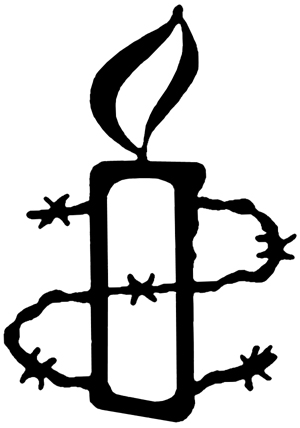The views expressed in our content reflect individual perspectives and do not represent the authoritative views of the Baha'i Faith.
“It is better to light a candle than to curse the darkness.”
Do you know who first said that? Most people think, when they hear this familiar piece of proverbial spiritual wisdom, that it must have come from an historical and venerable source. It sounds truly wise, inspirational, something an ancient sage might say. Could it be Biblical, or Buddhist, or even older?
Surprisingly, it’s none of the above.
In fact, many people probably heard it first in the early 1960’s, when the American president John Fitzgerald Kennedy employed the memorable proverb in a few of his speeches. But who was the first person to actually use it in public? A British lawyer and human rights advocate named Peter Benenson coined the iconic phrase when he founded Amnesty International. When you see Amnesty’s logo, a candle circled by barbed wire, you’ll understand the origin of the phrase even more graphically.
We probably relate to the spiritual content of this quote because we all understand darkness as a common metaphor for ignorance or evil. Thousands of references to darkness fill the scriptures of many diverse Faiths. In those scriptures, darkness can refer to death, to those considered purely evil, to harmful actions against others, to a period of ignorance before the realization of faith (“seeing the light”), or to a willful ignoring of the laws of God.
The night is far spent, the day is at hand: let us therefore cast off the works of darkness, and let us put on the armor of light. – Romans 13:12.
In Genesis, the first day of the biblical creation narrative, the world begins in darkness. Then God creates light, and separates light from darkness. Interestingly, Genesis says that the sun and moon didn’t get created until the fourth day – so in the Torah, light actually precedes the sun; more evidence that we should take the Bible symbolically, not literarlly. The Old Testament calls darkness “the second to last plague” in Exodus 10:21; and the New Testament says it causes the “weeping and gnashing of teeth” in Matthew 8:12. The Biblical Hell has fire that gives no light, which casts it into eternal darkness.
The Qur’an says that those who transgress the bounds of righteousness will suffer “burning despair and ice-cold darkness.” – Surah 78.25.
Chinese Taoist philosophy portrays the two opposing forces of yin and yang, with yin represented by a dark lobe in the spinning Tajitu, the Tao’s supreme, ultimate diagram of life. The divided circle, along with its analogues in ancient Celtic, Etruscan and Roman cultures, symbolizes the interplay of light and darkness in all aspects of human life – including each individual’s character.
The 16th-century mystic St. John of the Cross wrote The Ascent of Mount Carmel, a study of a soul looking for perfect union with God, and begins it as a commentary on his earlier poem “The Dark Night of the Soul.” In it, St. John uses the darkness of night to represent the tests and difficulties we can all experience as we grow and mature spiritually.
In the Baha’i writings, darkness represents something more nuanced and less (you’ll pardon the expression) black and white than it did in earlier traditions:
…there is no evil in existence; all that God created He created good. This evil is nothingness; so death is the absence of life. When man no longer receives life, he dies. Darkness is the absence of light: when there is no light, there is darkness. Light is an existing thing, but darkness is nonexistent. – Abdu’l-Baha, Some Answered Questions, p. 264.
The Baha’i teachings see total darkness as purely symbolic. Baha’is do not believe in Hell or Satan or pure, embodied evil – instead, they see darkness as a symbol of an unenlightened soul:
So the symbol of knowledge is light, and of ignorance, darkness; but reflect, is knowledge sensible light, or ignorance sensible darkness? No, they are merely symbols. These are only intellectual states, but when you desire to express them outwardly, you call knowledge light, and ignorance darkness. You say: “My heart was gloomy, and it became enlightened.” Now, that light of knowledge, and that darkness of ignorance, are intellectual realities, not sensible ones; but when we seek for explanations in the external world, we are obliged to give them a sensible form. – Abdu’l-Baha, Some Answered Questions, p. 84.
In many ways, the spiritual quotation “It is better to light a candle than to curse the darkness” fits beautifully into the Baha’i worldview. It expresses the Baha’i perspective of the non-existence of pure darkness and evil. It symbolizes the coming of enlightenment and knowledge into the world:
When the light of Baha’u’llah dawned from the East, He proclaimed the promise of the oneness of humanity. He addressed all mankind, saying, “Ye are all the fruits of one tree. There are not two trees: one a tree of divine mercy, the other the tree of Satan.” Again He said, “Ye are all the fruits of one tree, the leaves of one branch.” This was His announcement; this was His promise of the oneness of the world of humanity. Anathema and execration were utterly abrogated. He said, “It is not becoming in man to curse another; it is not befitting that man should attribute darkness to another; it is not meet that one human being should consider another human being as bad; nay, rather, all mankind are the servants of one God; God is the Father of all; there is not a single exception to that law. There are no people of Satan; all belong to the Merciful. There is no darkness; all is light. All are the servants of God, and man must love humanity from his heart.” – Abdu’l-Baha, The Promulgation of Universal Peace, p. 266.
You May Also Like
Comments


















"But denunciatory rhetoric is so much easier and cheaper than good works, and proves a popular temptation. Yet is it far better to light the candle than to curse the darkness."